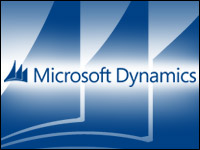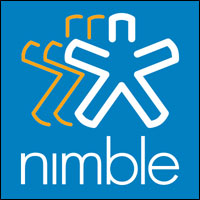
In a bid to augment its cloud services business with more flexibility on pricing and customization, Microsoft on Wednesday announced the launch of Microsoft Dynamics 365 and Microsoft AppSource, which will integrate its ERP and CRM solutions.
The combined cloud offerings, which will become available this fall, will allow customers to choose purpose-built apps for a range of business management processes, including financials, field service, sales, operations, marketing, project service automation and customer service.
The idea is to provide a range of apps that allow customers to pay only for the services they need in order to evolve with the business, said Takeshi Numoto, Microsoft’s corporate vice president of cloud and enterprise. The apps provide built-in insights, predictive intelligence and workflow automation.
Cortana Intelligence and Power BI, embedded in the apps, offer predictive next steps and advice to help employees make better decisions. For example, Cortana can help sales reps predict which products and services are likely to best suit a certain customer.
Dynamics 365’s deep integration with Office 365 will allow a user to respond to an email in Office, based on information from the Finance and Sales apps — all without ever having to leave Outlook.
Try Out SaaS With AppSource
Microsoft AppSource will let users try out line-of-business SaaS apps from Microsoft and various partners, including exclusives like AFS Retail Execution, which is an end-to-end solution for CPG organizations to use when they visit customers. The app covers sales, asset management, audit and other functions.
AvePoint Citizen Services allows government organizations to automate incident reporting, response and resolution. Veripark Next Best Action allows financial institutions to help make the right decisions for individual customers.
The pricing model provides two licensing options, said Jujhar Singh, corporate vice president, Microsoft Dynamics CRM. There is the traditional approach of licensing by application, which may include sales, financials and operations, for example. Alternatively, customers can choose licensing by role.
Those using Dynamics CRM or AX should have a seamless transition to Dynamics 365, according to the company.
“Broadly speaking, it demonstrates Microsoft’s continuing evolution as a cloud-based vendor and services provider, a transformation that has both accelerated and become more sharply directed under CEO Satya Nadella,” said Charles King, principal analyst at Pund-IT.
Microsoft will provide customers more latitude in how they purchase and deploy the company’s services under this cloud integration, he told CRM Buyer.
“Microsoft recognizes that organizations are seeking software suppliers that can be a strategic source of an integrated suite of solutions that is extensible via third-party applications and provides embedded development tools,” ThinkStrategies Managing Director Jeffrey Kaplan told CRM Buyer.
Integrated Services
It is almost impossible to integrate various business functions to create a single cloud system, observed Denis Pombriant, principal at Beagle Research. However, Microsoft is attempting to simplify the number of platforms operating inside a single enterprise.
“To the extent you can reduce clouds, you save on needing to know about different architectures and the tools and people to maintain them,” Pombriant told CRM Buyer, “but this has a practical limit in that most good clouds understand the need for some amount of best-of-breed mixing.”
Microsoft’s integration of CRM and ERP therefore should be seen as a platform play, he suggested, as the goal would be to have a “large ecosystem of compatible products, built on the same standards and supported by the same platform.”
Regarding the potential impact on rival firms, Pombriant noted that a number of ERP solutions are built on the Salesforce platform, including FinancialForce, Kenandy and IntAcct.
However, the new platform from Microsoft will not impact its existing relationships with those companies, Salesforce maintained.
“We’re committed to our partnership with Microsoft to further our mutual customers’ success,” the company said in a statement provided to CRM Buyer by spokesperson Laura Szatkowski. Salesforce will “continue to focus on building best-in-class integrations between Microsoft Office and Windows and Salesforce.”





















































